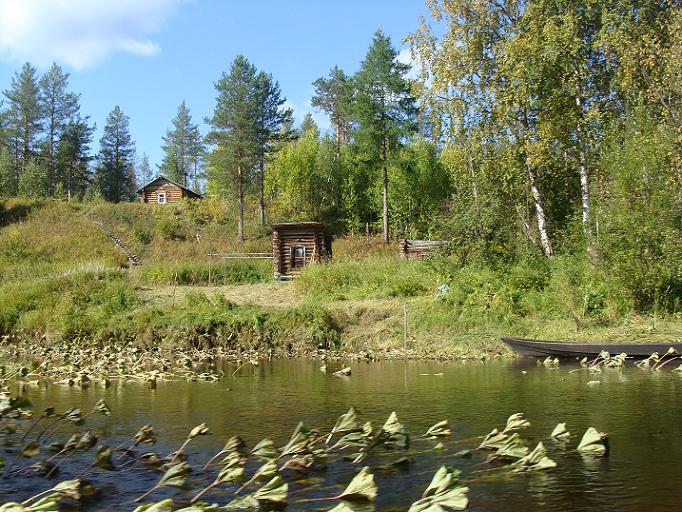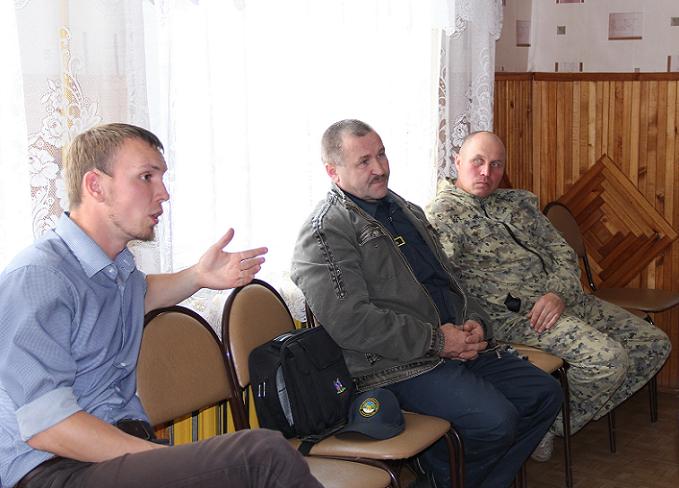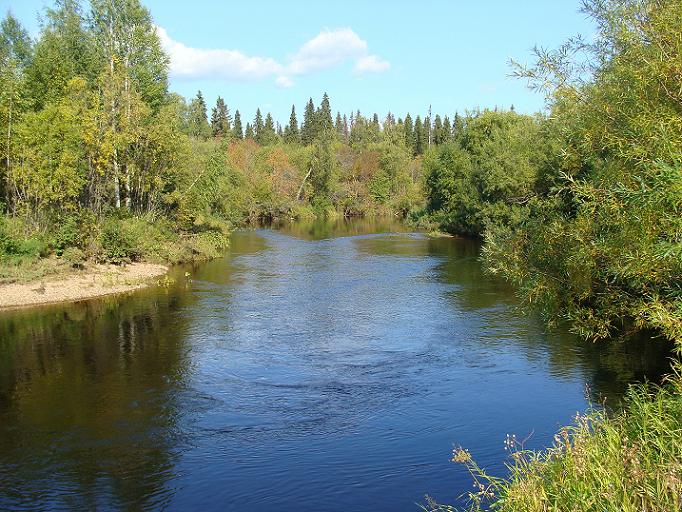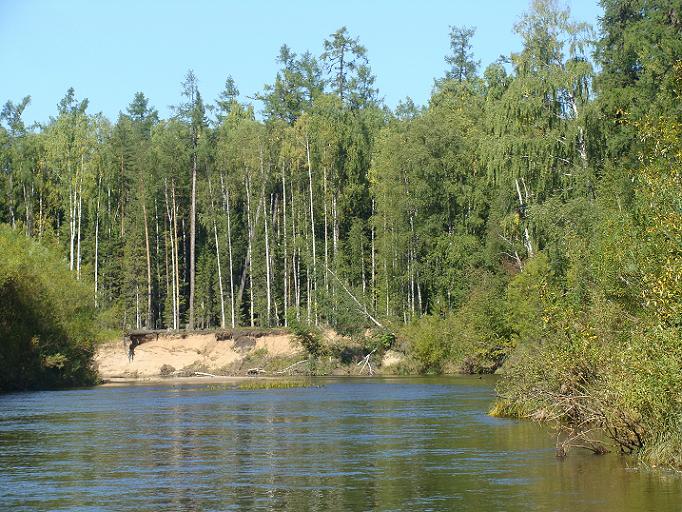People in the Remote Villages Do Not Believe They Can Change Anything
Last week the Silver Taiga Foundation employees Nikolay Shilov and Nikolay Shuktomov met with the residents of Vazhgort and Chuprovo – the villages located on the Vashka river.
Up to now the main efforts within the frameworks of the Model River project were focused on the river Mezen itself. However, Vashka is its biggest tributary, and the largest part of the population of the Udora district lives in the villages of the so-called “Vashka bush”. Unfortunately, it can be said, that this area is neglected by the government services as well. For example, there is not a single fishery protection inspector along the whole length of the river. It happens rarely that somebody meets with the local population and information that they get comes not in full or even distorted. That is why it is not a mere coincidence that Natalya Ivanovna Vurdova, the senior inspector of the Department of state control, supervision and protection of aquatic bioresources in the Udora district, participated in this trip together with the “Silver taiga” ecologists.
In Vazhgort village mainly the local members of the “AgroUdora” cooperative came to the meeting. Having joined the cooperative back in the days, at the beginning they legally fished lampreys on the leased part of the river. Later they were not given quotas for lamprey and after some time fishing of any kind of migratory fish, including lampreys, was totally prohibited. People asked if, taking into consideration the new Regulations, the cooperative members would have any benefits compared with the amateur fishermen and if it is still possible to introduce the necessary changes in the Regulations, particularly, to permit fishing of lampreys.
– We tried to give answers to these and other questions of the meeting participants, – the ecologist Nikolay Shuktomov shares his impressions. – Besides, we told about the activities undertaken within the frames of the Model River Mezen project and participation of the local population in the project initiatives. Unfortunately, not many people came to the meeting, and those who came were mainly elderly people, there were almost no young participants.
In Chuprovo village our meeting passed more lively, there were more people of different ages, and it seemed to me, that they were more interested in the subject of the meeting, many questions were asked. May be it happened because this village, even compared with Vazhgort, lives much more separately. Different speeches were made, including claims, but finally a common language was found and, in general, the conversation was very effective. Moreover, thanks to the local people we could move 50 kilometers up the Ezhuga Zyryanskaya – a very beautiful and unique river. We listened to the stories of our guides about the history of these places with great pleasure. Here the tribal lands – hunting paths and huts of local hunters and fishermen – are preserved in many generations. There is fish here so far, probably, also because local people “watch” their river – they do not let “electrofisherers” and other poachers come here. The locals themselves, as they say, “know when enough is enough”. And it looks as if it’s true. The river is also good in terms of the fish reproduction: the food potential is preserved, and even though loggings are moving in this direction from the Arkhangelsk region, there is no significant impact: according to our guides, the leaseholder acts “moderately”, while the locals try to monitor the situation.
Unfortunately, in the villages standing on the Vashka very little is known about the aims of the Model River Mezen project. As it turned out, the local people do not know a lot about the biology of the river fish “population”: there is almost no information and knowledge from the specialists, and that connection, which helped in the past to hand down traditional knowledge from generation to generation, is terminated… That is why the minds of the people contain many “myths”, which very often even remotely do not reflect the reality.
Information support, certainly, can be rearranged. Today there is only one information channel working for the people from remote villages – a district newspaper and its thematic supplement, devoted to the problems of the river and fish. It is very likely that we will have to continue having such meetings, as well as educational seminars for the local residents and other forms of information exchange. “Silver Taiga” will obligatorily do it in full within the frames of the Mezen project. Today people have a very limited access to information, there are no platforms where they can discuss vital problems, and this definitely does not help neither to the development of the public self-government, nor to the efforts to establish the proper river resources management, nor to the introduction of the local initiatives – people do not believe they can change anything. And they need help.
The photos are made by Sergey Davydov






